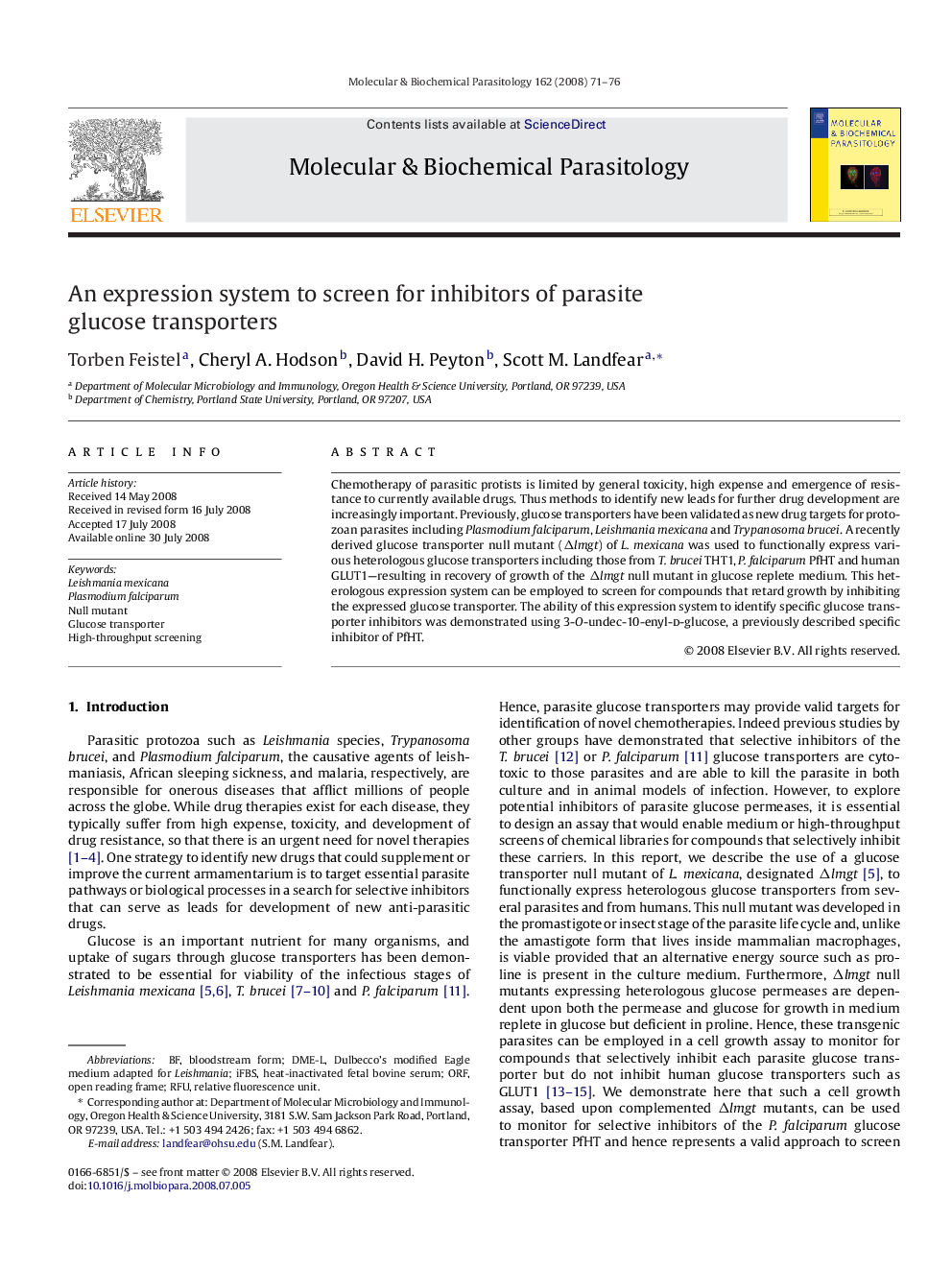| Article ID | Journal | Published Year | Pages | File Type |
|---|---|---|---|---|
| 2830097 | Molecular and Biochemical Parasitology | 2008 | 6 Pages |
Chemotherapy of parasitic protists is limited by general toxicity, high expense and emergence of resistance to currently available drugs. Thus methods to identify new leads for further drug development are increasingly important. Previously, glucose transporters have been validated as new drug targets for protozoan parasites including Plasmodium falciparum, Leishmania mexicana and Trypanosoma brucei. A recently derived glucose transporter null mutant (Δlmgt) of L. mexicana was used to functionally express various heterologous glucose transporters including those from T. brucei THT1, P. falciparum PfHT and human GLUT1—resulting in recovery of growth of the Δlmgt null mutant in glucose replete medium. This heterologous expression system can be employed to screen for compounds that retard growth by inhibiting the expressed glucose transporter. The ability of this expression system to identify specific glucose transporter inhibitors was demonstrated using 3-O-undec-10-enyl-d-glucose, a previously described specific inhibitor of PfHT.
